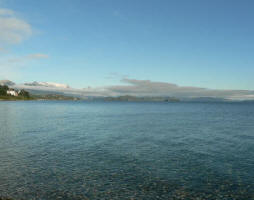 Marseilles Declaration, 1996
Marseilles Declaration, 1996
| Released | 03/03/2006 |
|---|
Marseilles
Declaration
-
The Presidency of the European Union, represented by Mr. Bernard ALLEN, Minister of State for the Environment of the Republic of Ireland,
-
The European Commission, represented by Mrs. Emma BONINO, European Commissioner for Fisheries, Consumers and Humanitarian Aid,
-
Algeria represented by Mr. Abdelnaceur KALLI, Director of the Minister's Cabinet, Ministry of Public Works and Land Reclamation,
-
Germany, represented by Mr. SPRANGER, Federal Minister for Economic Cooperation and Development,
-
Austria, represented by Mr. Wolfgang STALZER, Director General, Ministry of Agriculture,
-
Belgium, represented by Mr. Jan DE SCHUTTER, Natural Environment and Landscape Administration, Flanders Region,
-
Cyprus, represented by Mr. Costas PETRIDES, Ministry of Agriculture, Natural Resources and Environment,
-
Denmark represented by Mr. Thomas BECKER, Special Adviser to the Minister, Ministry of Environment and Energy,
-
Egypt, represented by Mr. Abd El-Rahman SHALABY, Senior Undersecretary, Ministry of Public Works and Water Resources,
-
Spain, represented by Mrs. Isabel TOCINO, Minister for the Environment,
-
Finland, represented by Mrs. Sirkka HAUTOJARVI, Secretary General, Ministry for the Environment,
-
France, represented by Mrs. Corinne LEPAGE, Minister for the Environment,
-
Greece, represented by Mr. Theodoros KOLIOPANOS, Secretary of State for the
Environment,
-
Ireland, represented by Mr. Bernard ALLEN, Minister of State for the Environment,
-
Israel, represented par Mr. Gidon ZUR, Water Commissioner, Ministry of Agriculture,
-
Italy, represented by Mr. Giovanni Francesco MATTIOLI, Vice Minister for Public Works,
-
Jordan, represented by Mr. Samir KAWAR, Minister of Water and Irrigation,
-
Lebanon, represented by Mr. Ali HRAJLI, Minister of Public Works,
-
Luxembourg, represented by Mr. Johny LAHURE, Minister for the Environment,
-
Malta, represented by Mr. Charles BUHAGIAR, Minister for Public Works and Construction,
-
Morocco, represented by Mr. Abdelaziz MEZIANE, Minister of Public Works,
-
The Netherlands, represented by Mr. Jan HOOGLAND, Deputy Director General, Ministry of Transport, Public Works and Water Management,
-
Portugal, represented by Mr. Pedro SERRA, President, National Water Institute,
-
United Kingdom, represented by Mr. Neil SUMMERTON, Director for Water, Ministry for the Environment,
-
Sweden, represented by Mr. Mats KARLSSON, Secretary of State for International Cooperation,
-
Syria, represented by Mr. Abdul Rahman MADANI, Minister of irrigation,
-
Tunisia, represented by Mr. Mohamed Medhi MLIKA, Minister for the Environment and Land Reclamation,
-
Turkey, represented by Mr. Recai KUTAN, Minister of Energy and Natural Resources,
-
Palestinian Authority, represented by Mr. Riyad EL-KHOUDARY, President, Al Azhar University,
participants at the Marseilles Euro-Mediterranean Conference on Local Water Management:
-
reassert the principles set out in the declaration and the work programme adopted at Barcelona on November 28, 1995, in all its parts: political, economic, cultural and social,
-
recognise that water resources are limited and becoming scarce, and that development costs are becoming prohibitive,
-
recognise that water is not only an asset of economic value, but also an important element to be protected on respect of all ecosystems,
-
are aware of the need to define a set of common principles, the application of which will make water a factor of co-operation,
-
underline the importance of water issues in the setting up of a Euro-Mediterranean solidarity area so that the partnership objectives set in Barcelona are achieved,
-
wish to give a new impetus to the Euro-Mediterranean co-operation in the field of water management, and establish guidelines for co-operation in this sector,
-
take note of the recommendations and technical conclusions of the experts' workshops in Cairo on 21st and 22nd October and Marseilles on 25th November 1996,
-
confirm and supplement the principles of the Rome Charter of 23 October 1992. They agree to respect, each so far as they are concerned, the principles and the type of actions set out herein after,
-
Rational management of water, its protection, its utilisation and the development of available resources while respecting the natural equilibria and the rights of future generations, are of major interest.
-
Water management should contribute to develop a sense of solidarity between different users. The participants will endeavour to meet the needs of their populations while respecting the public interest and the requirements of balanced management.
-
Economic and social development requires sustainable water management policies and plans. Hence, economic and social development policies should take water management policies into account.
-
Management policies for water uses and resources must be based on short, medium and long term development plans which take account of social, economic and environmental criteria.
-
Water must be managed in its natural environment. The participants will endeavour to organise their water policies within the framework of a global and integrated approach. Their policies will be co-ordinated with those related to soil management and conservation and to land use planning.
-
Water needs to be managed in a participative manner. The multiplicity of water uses implies that institutional and legal mechanisms be set up and adapted to the social, cultural, physical and economic context of projects, while directly or indirectly associating the various categories of users. This participative management is one of the elements contributing to the prevention of conflicts. It must be ensured at all appropriate levels.
-
Water must be conserved. The participants will seek to promote demand management and conservation policies as well as initiatives aimed at combating water shortages.
-
Water quality must be managed. The participants will seek to promote the establishment of quality standards for the supply of good quality water and for discharges of waste water, together with proper detection and monitoring means. They consider it to be important to pursue a sustained investment policy in this field.
-
Water has a socio-economic value. The participants agree on the need to assess this value. They will undertake economic analyses and will develop means of calculation to assess the cost of the services needed to provide, distribute, and give access to water and guarantee its quality. The price of these services to the users will take into account these costs, in an appropriate manner. In this respect, effective access for the poorest people in urban and rural areas to potable water would have to be ensured.
-
Water management requires sufficient, accessible information. The participants will endeavour to develop and standardise the administrative methods for data (collection, storage, processing, validation and up-dating...) on water quality, quantity, demand, resources and on forecasting disasters. The participants agree to improve access to this information.
-
Water has always been given a particularly important place in the Mediterranean cultures. Today, educational programmes at all levels must emphasise the value of water. Furthermore, the participants will pursue their efforts to inform and make people aware of water issues in the Mediterranean region.
-
Water management requires skills. The participants will endeavour to support the development or the continuation of training programmes for professionals, particularly those involved in operations, including social, economic and environmental aspects.
-
The increasing gap between potential water availability and foreseeable demand requires that an important innovatory effort be undertaken. The participants will encourage research in the field of water on different topics (technical, cultural, social,...). In particular they will pursue their scientific and technical efforts on the use of new sources of water (recycling, desalination,...).
-
The challenge of the future management of water is of prime importance. Consequently, the participants will, whenever possible pool their practical knowledge and strengthen their co-operation in the field of water management.
CAIRO, OCTOBER 21 AND 22, 1996
MARSEILLES, NOVEMBER 25, 1996
 you are not logged in
you are not logged in





